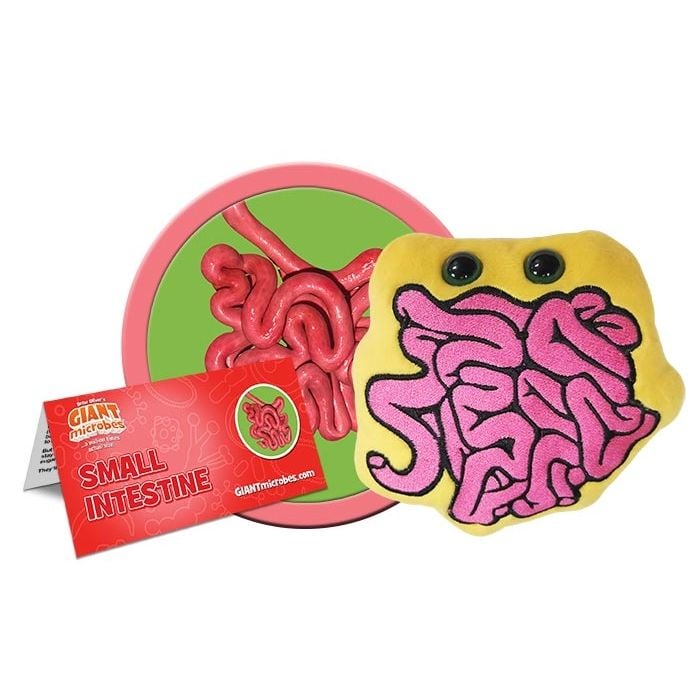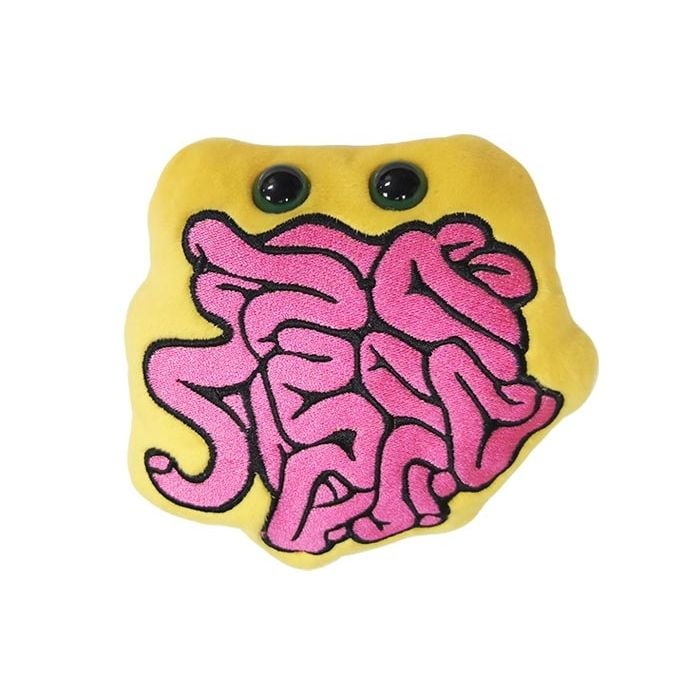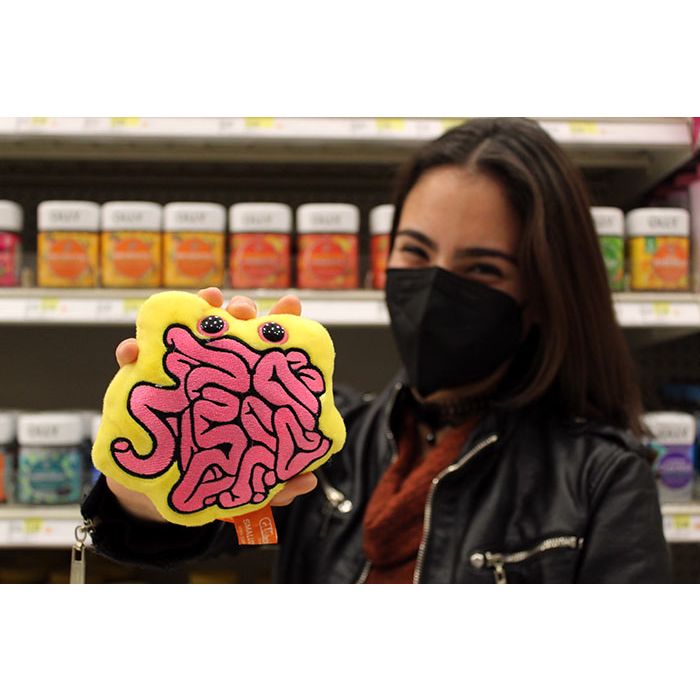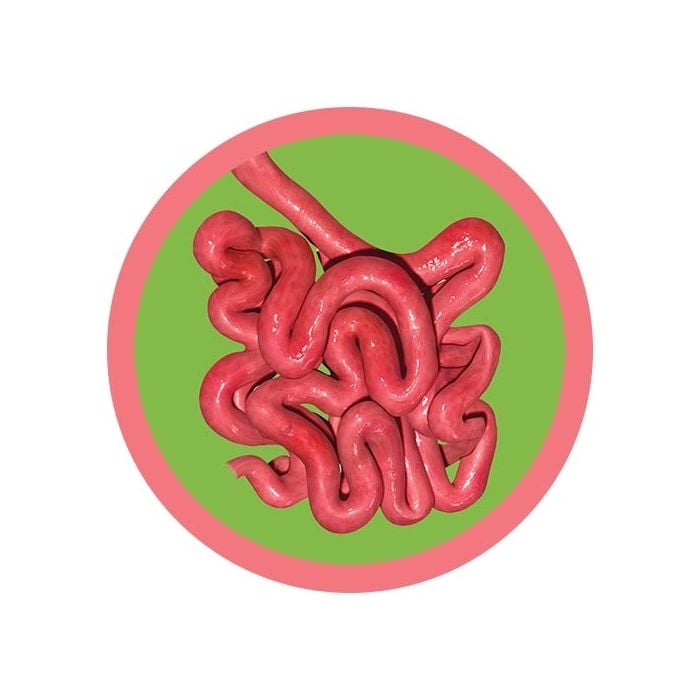Small Intestine
Out of Stock
Product Details
Additional Information
| Sizes | Giantmicrobes are based on actual microbes, cells, organisms and other critters, only 1,000,000 times actual size! Gigantic (GG) 40-60cm XL (XL) 25-38cm Original (PD) 12-20cm Keychain (KC) 5-10cm with clip |
|---|---|
| Materials | Plush from all new materials. Stuffed with polyester fiber fill. Surface washable: sponge with water & soap, air dry. |
| Packaging | Each plush microbe includes a printed card with fun, educational and fascinating facts about the actual microbe or cell. |
| Safety | Every product meets or exceeds U.S. and European standards for safety. For ages 3 and up. |
All about Small Intestine
FACTS: Churned food travels from the stomach into the long, convoluted small intestine. Over 5 meters in length, the small intestine digests food into proteins, lipids, carbohydrates, vitamins, minerals and other nutrients the body uses for fuel. The first section is 12" long and its name, duodenum, means "12 each". The longer sections are the jejunum and ileum.
The intestine has interior folds covered with millions of finger-like projections called villi. Each villus has cells with their own microvilli. All the folds and villi make the intestine’s surface area massive, roughly 200 times the area of the surface of your skin! This is why your small intestine is so efficient at absorbing nutrients into the bloodstream. When your intestine’s villi malfunction, it can cause anemia, weight loss and vitamin deficiencies. This can happen due to celiac disease, a type of autoimmune disorder in which the ingestion of gluten (a protein found in wheat) causes an immune response and the villi lose their ability to absorb nutrients from food particles.
A remarkable aspect of your digestive tract is that it is home to trillions of microbes. This gut microbiome is an integral part of your health and well-being. While most microbes live in your colon, or large intestine, many also enjoy the view in your small intestine. Lactobacillus and Methanobrevibacter smithii are among the beneficial bacteria living inside of you that facilitate production of enzymes, break down complex sugars and hopefully bring you digestive joy.









